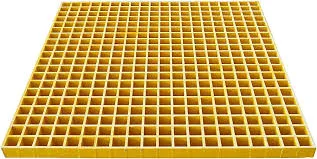
-
 Afrikaans
Afrikaans -
 Albanian
Albanian -
 Amharic
Amharic -
 Arabic
Arabic -
 Armenian
Armenian -
 Azerbaijani
Azerbaijani -
 Basque
Basque -
 Belarusian
Belarusian -
 Bengali
Bengali -
 Bosnian
Bosnian -
 Bulgarian
Bulgarian -
 Catalan
Catalan -
 Cebuano
Cebuano -
 China
China -
 China (Taiwan)
China (Taiwan) -
 Corsican
Corsican -
 Croatian
Croatian -
 Czech
Czech -
 Danish
Danish -
 Dutch
Dutch -
 English
English -
 Esperanto
Esperanto -
 Estonian
Estonian -
 Finnish
Finnish -
 French
French -
 Frisian
Frisian -
 Galician
Galician -
 Georgian
Georgian -
 German
German -
 Greek
Greek -
 Gujarati
Gujarati -
 Haitian Creole
Haitian Creole -
 hausa
hausa -
 hawaiian
hawaiian -
 Hebrew
Hebrew -
 Hindi
Hindi -
 Miao
Miao -
 Hungarian
Hungarian -
 Icelandic
Icelandic -
 igbo
igbo -
 Indonesian
Indonesian -
 irish
irish -
 Italian
Italian -
 Japanese
Japanese -
 Javanese
Javanese -
 Kannada
Kannada -
 kazakh
kazakh -
 Khmer
Khmer -
 Rwandese
Rwandese -
 Korean
Korean -
 Kurdish
Kurdish -
 Kyrgyz
Kyrgyz -
 Lao
Lao -
 Latin
Latin -
 Latvian
Latvian -
 Lithuanian
Lithuanian -
 Luxembourgish
Luxembourgish -
 Macedonian
Macedonian -
 Malgashi
Malgashi -
 Malay
Malay -
 Malayalam
Malayalam -
 Maltese
Maltese -
 Maori
Maori -
 Marathi
Marathi -
 Mongolian
Mongolian -
 Myanmar
Myanmar -
 Nepali
Nepali -
 Norwegian
Norwegian -
 Norwegian
Norwegian -
 Occitan
Occitan -
 Pashto
Pashto -
 Persian
Persian -
 Polish
Polish -
 Portuguese
Portuguese -
 Punjabi
Punjabi -
 Romanian
Romanian -
 Russian
Russian -
 Samoan
Samoan -
 Scottish Gaelic
Scottish Gaelic -
 Serbian
Serbian -
 Sesotho
Sesotho -
 Shona
Shona -
 Sindhi
Sindhi -
 Sinhala
Sinhala -
 Slovak
Slovak -
 Slovenian
Slovenian -
 Somali
Somali -
 Spanish
Spanish -
 Sundanese
Sundanese -
 Swahili
Swahili -
 Swedish
Swedish -
 Tagalog
Tagalog -
 Tajik
Tajik -
 Tamil
Tamil -
 Tatar
Tatar -
 Telugu
Telugu -
 Thai
Thai -
 Turkish
Turkish -
 Turkmen
Turkmen -
 Ukrainian
Ukrainian -
 Urdu
Urdu -
 Uighur
Uighur -
 Uzbek
Uzbek -
 Vietnamese
Vietnamese -
 Welsh
Welsh -
 Bantu
Bantu -
 Yiddish
Yiddish -
 Yoruba
Yoruba -
 Zulu
Zulu
fiberglass products for high temperature
Fiberglass Products for High Temperature Applications
Fiberglass, a material known for its versatility and strength, has gained significant traction in industries that require high-temperature resistance. This feature, coupled with its lightweight properties and excellent insulation capabilities, makes fiberglass an ideal choice for a variety of applications that operate under extreme conditions.
One of the primary reasons fiberglass is favored in high-temperature settings is its ability to withstand significant heat without losing structural integrity. Standard fiberglass can typically endure temperatures of up to 450°F (232°C), while specialized types can handle temperatures exceeding 1000°F (538°C). This property is crucial in industries such as aerospace, automotive, and manufacturing, where components are often exposed to intense heat.
In the aerospace sector, fiberglass products are used in the construction of parts that must withstand extreme thermal environments. For example, fiberglass composites are utilized in thermal protection systems of aircraft, ensuring safety and performance in high-speed flights. The lightweight nature of fiberglass also contributes to fuel efficiency, making it an advantageous option in aircraft design.
Similarly, in the automotive industry, fiberglass is used in high-temperature applications such as engine components and insulation materials. Parts like spark plug wires and muffler hangers benefit from fiberglass's heat resistance, providing durability and longevity in harsh conditions. The ability of fiberglass to maintain its properties under stress makes it an essential material in modern automotive manufacturing.
fiberglass products for high temperature

Manufacturers producing fiberglass products for high-temperature applications often employ special resin systems and processing techniques to enhance the material's thermal stability. Epoxy and silicone resins are common choices, as they provide additional resistance to heat while offering excellent adhesion and compatibility with fiberglass fibers.
In addition to aerospace and automotive applications, fiberglass is prominent in industrial settings. Insulation materials made from fiberglass are used in high-temperature facilities, such as power plants and refineries, to reduce heat loss and protect personnel from heat exposure. These insulated products help maintain efficient operation while ensuring worker safety.
The application of fiberglass in high-temperature contexts extends beyond traditional uses; it is also being explored in emerging technologies. For instance, as industries seek more efficient and sustainable solutions, innovations involving fiberglass in the realm of renewable energy production—such as wind turbine blades—are becoming increasingly essential.
In conclusion, fiberglass products designed for high-temperature applications play a pivotal role across various industries. Their exceptional thermal resistance, lightweight nature, and durability make them invaluable in ensuring safety and efficiency in environments that demand resilience to extreme heat. As technology continues to advance, the potential applications for high-temperature fiberglass products are likely to expand, paving the way for enhanced performance and innovation in the future.
Latest news
-
Exploring the Benefits of Top Hammer Drifter Rods for Enhanced Drilling PerformanceNewsJun.10,2025
-
High-Precision Fiberglass Winding Machine for GRP/FRP Pipe Production – Reliable & Efficient SolutionsNewsJun.10,2025
-
FRP Pipes & Fittings for Shipbuilding - Corrosion-Resistant & LightweightNewsJun.09,2025
-
Premium FRP Flooring Solutions Durable & Slip-ResistantNewsJun.09,2025
-
Premium Fiberglass Rectangular Tanks Durable & Lightweight SolutionNewsJun.09,2025
-
Tapered Drill String Design Guide Durable Performance & UsesNewsJun.09,2025









